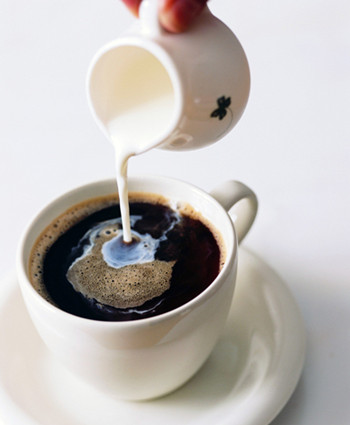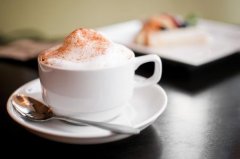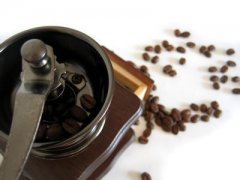The composition and aroma of coffee beans is the life of coffee quality.

Sugar: without sugar, you will not only feel the bitterness of caffeine and the sour taste of tannin, but also feel sweet, which is caused by the sugar contained in the coffee itself. After baking, most of the sugar will be converted to caramel, bringing a unique brown to the coffee.
Minerals: there are lime, iron, sulfur, sodium carbonate, phosphorus, chlorine, silicon and so on, because the proportion of very little affect the flavor of coffee is not big, combined to bring only a little astringent taste.
Crude fiber: raw bean fiber will be carbonized after baking, this carbon and sugar caramelization combine with each other to form the tone of coffee, but the fiber turned into powder will have a considerable impact on the flavor of coffee. Therefore, we do not encourage the purchase of powdered coffee beans, because we are unable to taste the flavor of the coffee.
The bitterness of coffee: the color, aroma, and taste of coffee are caused by complex chemical changes that take place during roasting. Therefore, raw beans must go through appropriate chemical procedures to achieve the most balanced state of its essential ingredients in order to be regarded as the best baked beans. The aroma of coffee changes with the heat, so the baking time should be shortened as much as possible, and the heat should be controlled at the lowest temperature that can produce effective chemical composition of coffee beans, that is, the time and heat of the shortest process, so that coffee beans can produce the most suitable composition ratio.
Aroma: aroma is the life of coffee quality, and it can best represent the coffee production process and baking technology, as well as the climate, elevation, variety, refined treatment, harvest, storage, roasting technology of the consuming country, etc. are the conditions that determine the aroma of coffee beans. The results of gas chromatographic analysis showed that the aroma of coffee was composed of acid, alcohol, acetaldehyde, ketone, ester, sulfur compound, phenol, nitrogen compound and nearly hundreds of volatile components. Generally speaking, fat, albumen and sugars are important sources of aroma, while lipids blend with the sour and bitter of coffee to form a smooth flavor. Therefore, the disappearance of fragrance means that the quality is getting worse, and the relationship between aroma and quality is very close.
Important Notice :
前街咖啡 FrontStreet Coffee has moved to new addredd:
FrontStreet Coffee Address: 315,Donghua East Road,GuangZhou
Tel:020 38364473
- Prev

The main producing areas of coffee brands and the characteristics of strict selection of beans
The characteristics of ● 's main producing areas and strict selection of beans at present, there are many kinds of imported coffee beans from all over the world, so it is impossible to choose. Here, we will introduce the main producing areas and the characteristics of coffee beans as a reference for you to choose and buy coffee. ● Brazil (South America), the largest coffee producer, accounts for 1/3 of the global consumption of coffee of all grades and types.
- Next

Coffee growth knowledge Coffee growth habits
Coffee is a kind of drink, which gives the public the impression that it is black, bitter, sleepless and excited. The coffee beans we see in the coffee shop are tea-brown, which belongs to roasted coffee beans, while the color of the coffee liquid is amber. Coffee comes from coffee beans, which are harvested and processed from the fruit of trees. The growth habit of coffee: coffee
Related
- Guji coffee producing area of Guji, Ethiopia: Humbela, Shakiso, Wulaga
- What is the most expensive variety of Qiloso in BOP multi-variety group?
- How to store the coffee beans bought home?
- Why are Yemeni coffee beans so rare now?
- Ethiopian Sidamo all Red Fruit Sun Sun Santa Vini Coffee beans
- SOE is mostly sour? What does it mean? Is it a single bean? what's the difference between it and Italian blending?
- Is Italian coffee beans suitable for making hand-brewed coffee?
- How to choose coffee beans when making cold coffee? What kind of coffee beans are suitable for making cold coffee?
- Just entered the pit to make coffee, what kind of coffee beans should be chosen?
- Can only Japan buy real Blue Mountain Coffee? What are authentic Jamaican Blue Mountain coffee beans?

